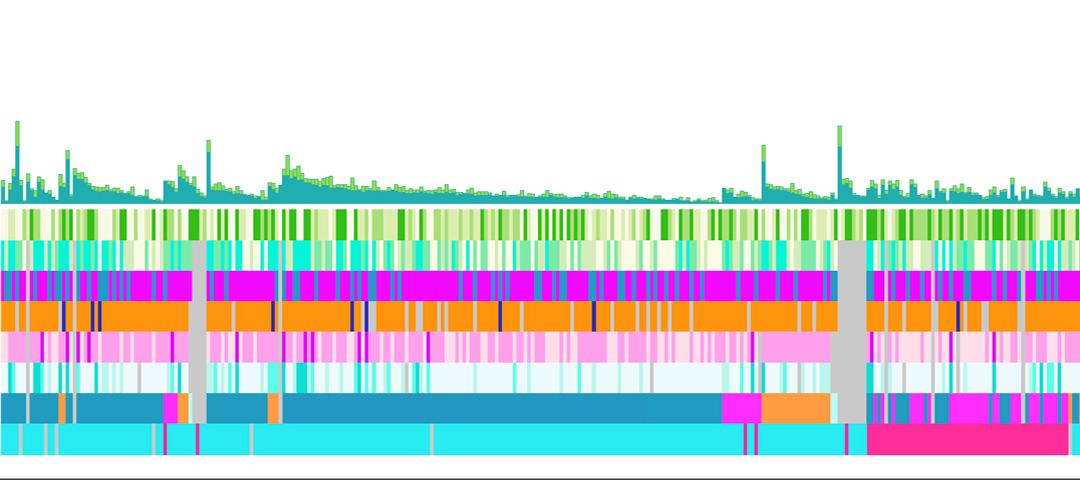New Details on Thyroid Cancer May Lead to More Precise Therapies
 isbscience.org/news/2014/10/23/new-details-on-thyroid-cancer-may-lead-to-more-precise-therapies/
isbscience.org/news/2014/10/23/new-details-on-thyroid-cancer-may-lead-to-more-precise-therapies/
3 Bullets:
- Papillary thyroid cancer represents 80 percent of all thyroid cancer cases.
- Integrative analysis resulted in the detection of significant molecular alterations not previously reported in the disease.
- ISB researchers identified microRNAs which may lead to more precise therapy.
By Lisa Iype
Papillary thyroid cancer (PTC) is the most common type of thyroid cancer, accounting for 80 percent of all cases. As part of The Cancer Genome Atlas (TCGA) project, ISB researchers helped to analyze the largest cohort of PTC samples studied to date. The low background mutation density of PTC and the large number of patients in the study enabled the researchers to detect significant molecular alterations that were not associated with the disease before.
Title: Integrated Genomic Characterization of Papillary Thyroid Carcinoma
Publication: Cell
Authors: The Cancer Genome Atlas Research Network
Link: http://www.cell.com/cell/pdf/S0092-8674%2814%2901238-0.pdf
Researchers analyzed DNA sequence, gene expression, microRNA expression, protein expression, and DNA methylation profiles of PTCs to study the disease. ISB researchers played a significant role in exploring associations among these different types of data. They detected potential involvement of certain microRNAs, which are small non-protein-coding RNA molecules that can regulate the activities of other genes, in less differentiated subgroups of PTC, which may lead to more precise surgical and medical therapy.
Studying the disease from a systems perspective demonstrated that the subgroups of PTC differ in their molecular alterations as well as signaling and differentiation characteristics. With this knowledge, the researchers are proposing a refined classification of PTC to reflect these differences and to better inform clinical management of the disease.
Read more about ISB’s role in TCGA.
About Dr. Lisa Iype: Lisa is a bioinformatics scientist in the Shmulevich Lab at ISB. She contributed to the integrative analysis represented in this TCGA Research Network paper.





